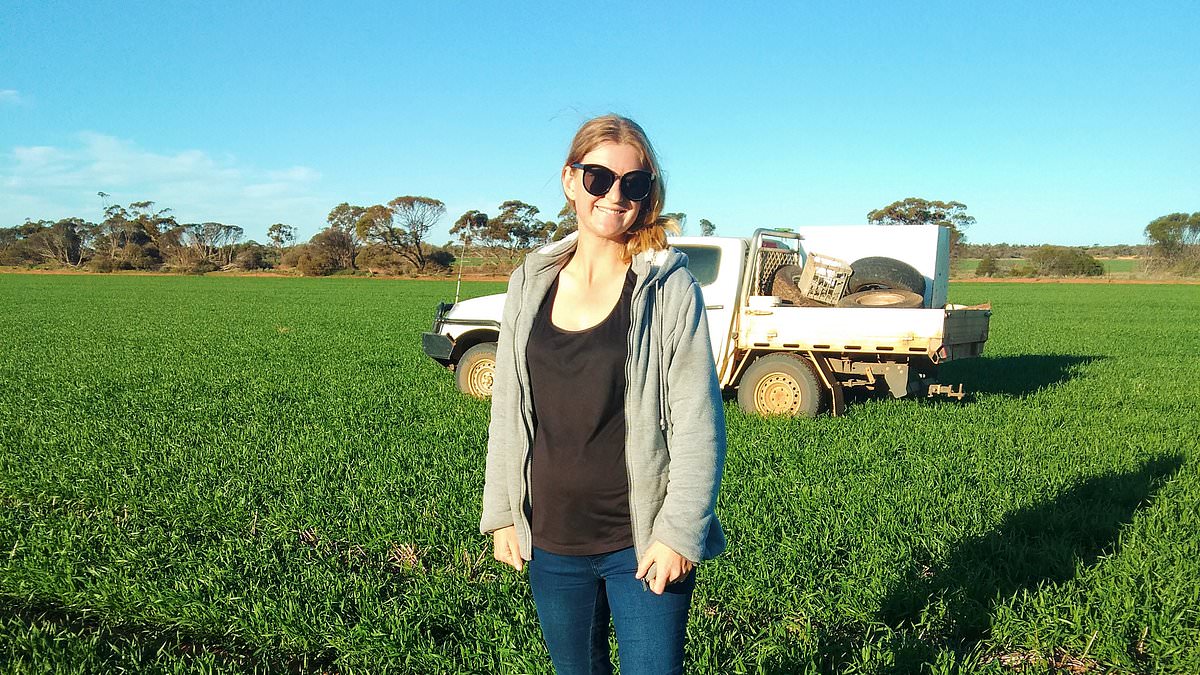Furious farmers say they have been ‘shafted’ by the Albanese government’s live export ban – and warn it could impact our food supply as farmers are forced off the land.
Although the full ban does not come into effect until May 2028 farmers say it is already having a devastating economic effect on Western ‘s regional economy and communities where the industry is largely based.
Many farmers have offloaded their flocks altogether, as they prepare for the ban to come into force.
‘In terms of sheep flooding the local market it’s had a massive effect,’ sheep farmer Matt Kippen told Daily Mail .
‘Everybody thought it was going to start in four years time when the ban actually kicks in but it has been happening for at least the last two years.’
Mr Kippen, 29, who farms in WA’s Denbarker region around four and a half hours from Perth, said he was forced to shoot around 350 lambs because the market glut made them impossible to offload and drought meant he had to buy feed.
‘It’s been uneconomical even holding on to breeding stock this year,’ he said.
‘If there had been a market last summer, I definitely would have offloaded the vast majority of my sheep, if not all of them.’
Despite the glut of sheep Mr Kippen said consumers didn’t seem to be benefiting.
‘The money is going somewhere, it is not going in the farmer’s pocket,’ he said.
‘It seems to get lost between the farmer and the supermarket, they are still charging a lot for lamb.’
‘Even when we are getting animals to market we are probably getting half the price if not a quarter of the price we were getting three years ago.’
Mr Kippen said the ban threatened the future of family-owned farms, and had even considered selling up himself.
‘Obviously, for the younger generation to take over farms, it is going to make it a lot harder to make it a profitable and enjoyable business and an enjoyable lifestyle without livestock on the farms,’ he said.
‘The corporates will be the only ones able to afford the land on such a big scale so it is going to have disastrous effects.
‘It is going to lead to a lot fewer farmers, which will eventually lead to the death of country towns.’
He also said it could affect the diet of ns.
‘We want to raise the best quality food for the population, not just ourselves,’ he said.
‘The vast majority eat meat and they enjoy eating it. It is going to become more expensive to make it viable for the farmer.
‘It is going to be a huge reduction in a protein source that the people in the cities eat.’
Jess Grove, 29, who runs a mixed sheep and cropping farm with their husband Alex, 30, in the midwest northern agricultural region of Western , said the ban had been a massive financial hit.
‘We’ve considered shooting sheep. It’s a large resort,’ she said.
‘As sheep farmers, we care about stock and don’t want to see the waste, so we haven’t reached that point yet.’
The Dorper breed of sheep on the Groves’ farm is solely bred for live export but when the Albanese government began foreshadowing the live export ban the market for them collapsed.
‘Before the instability we sold between three and four thousand a year. In the last 18 months we have sold none,’ Ms Grove said.
Animal activists have long claimed the live export of sheep to be slaughtered according to religious rituals in countries such as Jordan and Kuwait is cruel.
But Keep the Sheep campaign co-ordinator Paul Brown said the live export ban was a ‘grubby manoeuvre to shore up (Labor) preference deals with minor political parties’ and had nothing to do with animal welfare.
‘The live sheep export industry and WA farmers are nothing more than innocent bystanders in a political drive-by shooting, where the Prime Minister’s aim was on the east coast seats he needs to keep himself in the top job,’ Mr Brown said.
‘They call them floating feed lots for a reason. They gain weight. An animal in distress doesn’t gain weight as any producer claims.
‘There are concerns over the end result when they get there, but it’s being governed by n governance.
‘I believe n live export has improved animal welfare.’
‘Currently, our industry meets and beats every standard and benchmark that the Department requires.
In June, the government held a Lower House parliamentary inquiry into the proposed ban, but it only gave farmers and other industry players a week to make submissions.
‘I know so many people producers who put in submissions that never made it, including ours, onto the website. They were never even read. It didn’t feel like it was based on any science or evidence.’
Ms Grove believed some in the city had a very tainted view of farming.
‘Seeing activists and their contempt and hatred for farmers is very disheartening,’ she said.
‘I am just a mum with two kids, and I love sheep. I can see it fits well in sustainable farming.
‘They think we are just out here to hurt here to hurt everything.
‘That needs to change somehow but I don’t know how.’
The Albanese government has been contacted for comment.
